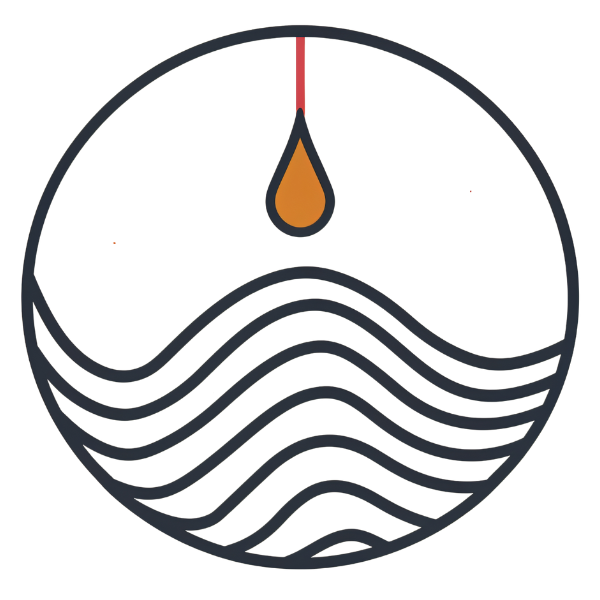
Speed Up Your Muscle Recovery With Magnesium: The Power of This Essential Mineral
Share
For anyone who exercises regularly or trains intensively, muscle recovery is a crucial part of the training process. Fast and efficient muscle recovery can make the difference between progression and injury. But did you know that magnesium plays a key role in accelerating this recovery? This often overlooked mineral is essential for several bodily functions, including muscle recovery. In this comprehensive blog, we’ll dive deeper into how magnesium can improve your muscle recovery, why it’s so important, and how to make sure you’re getting enough.
What is Magnesium and Why is it So Important?
Magnesium is a mineral that is vital to over 300 enzymatic reactions in the body. It plays a major role in muscle and nervous system function, protein synthesis, and energy metabolism. Despite these essential functions, studies show that many people are deficient in magnesium. This can be especially problematic for athletes, as magnesium deficiency can slow the recovery process and even lead to muscle cramps and fatigue.
Magnesium and Muscle Recovery: The Mechanisms Behind Recovery
After an intense workout, your muscles need rest and nutrients to recover. Magnesium supports this process in several ways:
-
Reduction of Muscle Tension : Magnesium helps regulate muscle tension. After exercise, it helps your muscles relax, which is essential for recovery and preventing cramps.
-
Support of Protein Synthesis : This mineral is essential for the synthesis of proteins, which are necessary for the repair and construction of muscle tissue.
-
Calcium regulation : Magnesium helps to regulate the calcium level in the muscles. This prevents excessive contraction and helps to avoid muscle cramps.
From a study published in Nutrients it appears that a shortage of magnesium may lead to an increased risk of muscle damage and decreased muscle function, especially in people who participate in intensive sports.
The Surprising Benefits of Magnesium for Muscle Recovery
| Advantage | Emoticon |
|---|---|
| Faster recovery after training | ⏱️ |
| Improved sleep quality | 😴 |
| Increased energy production | ⚡ |
| Preventing muscle cramps | ❌💥 |
| Support of protein synthesis | 🧬 |
1. Faster Recovery After Training
One of the most compelling benefits of magnesium is its acceleration of muscle recovery after strenuous exercise. In a study published in American Journal of Clinical Nutrition , it was shown that athletes who took magnesium supplements experienced less muscle damage and recovered faster after intense training .
2. Improved Sleep Quality
Sleep is crucial for recovery, and magnesium plays an important role in promoting a good night's sleep. Magnesium has a calming effect on the nervous system, which helps improve sleep quality. Research shows that people who suffer from insomnia may benefit from magnesium supplementation, which indirectly contributes to more effective muscle recovery.
3. Increased Energy Production
Magnesium is essential for the production of ATP ( adenosine triphosphate ), the main energy carrier in our cells. This means that magnesium not only helps with recovery, but also provides more energy during your workouts, improving your performance.
4. Preventing Muscle Cramps
Muscle cramps are a common problem among athletes. Magnesium plays a crucial role in preventing these cramps by regulating calcium and relaxing the muscles. Research published in the journal Magnesium Research shows that a shortage of magnesium is associated with an increased incidence of muscle cramps.
How Can You Get More Magnesium?
Now that you know the benefits of magnesium, it is important to know how to get enough magnesium. This can be done through food and supplements.
| Food | Emoticon |
|---|---|
| Dark leafy greens | 🥬 |
| Nuts and seeds | 🌰 |
| Legumes | 🫘 |
| Whole grains | 🍚 |
| Avocados | 🥑 |
1. Magnesium Rich Foods
You can increase your magnesium intake by eating foods rich in this mineral. Some excellent sources of magnesium include:
- Dark leafy greens like spinach and kale
- Nuts and seeds, especially almonds, cashews and pumpkin seeds
- Legumes such as black beans and chickpeas
- Whole grains such as quinoa, brown rice and whole wheat bread
- Avocados, which are not only magnesium , but also contain healthy fats
Eating a varied diet rich in these foods can help keep your magnesium intake up.
2. Magnesium supplements
While a healthy diet should be the foundation of your magnesium intake, supplements can be a helpful addition, especially if you exercise vigorously. Magnesium supplements come in a variety of forms, including magnesium citrate, glycinate, and chloride. Choose a form that is well-absorbed by the body and talk to your doctor before beginning supplementation, especially if you are taking other medications.
| Method | Emoticon |
|---|---|
| Magnesium-rich foods | 🥗 |
| Magnesium supplements | 💊 |
| Enrich diet | 🍽️ |
| Hydration | 💧 |
| Regular intake | ⏰ |
Frequently Asked Questions About Magnesium And Muscle Recovery
1. How Much Magnesium Do I Need Daily?
The recommended daily amount of magnesium varies from person to person. Adult men typically need 400-420 mg per day, while women need around 310-320 mg per day. This amount can increase with intense physical activity.
2. What Are the Symptoms of Magnesium Deficiency?
Symptoms of magnesium deficiency can range from mild muscle cramps and fatigue to more serious symptoms such as heart rhythm problems and high blood pressure. A deficiency can also contribute to sleep problems and increased sensitivity to stress .
| Symptom | Emoticon |
|---|---|
| Muscle cramps | 💥 |
| Fatigue | 😩 |
| Cardiac arrhythmias | ❤️🩹 |
| High blood pressure | 💉 |
| Sleep problems | 🛌 |
3. When Should I Take Magnesium For Optimal Muscle Recovery?
There is no single answer to when it is best to take magnesium. Some people take it before bed for its relaxing effects, while others take it after their workout to support muscle recovery. The key is to be consistent and find a routine that works for you.
4. Can I Get Too Much Magnesium?
While it is difficult to get too much magnesium from food, high doses of supplements can lead to side effects such as diarrhea, nausea, and abdominal cramps. It is important to follow recommended dosages and consult a doctor if in doubt.
5. Does Magnesium Help With Other Health Problems?
Yes, magnesium is also helpful for several other health conditions, such as regulating blood pressure, improving bone health, and reducing anxiety and stress. Additionally, it can help reduce symptoms of premenstrual syndrome (PMS) and migraines.
Conclusion
Magnesium is an essential mineral that plays a crucial role in muscle recovery after exercise. Whether you are an elite athlete looking to optimize your performance, or simply someone who wants to recover faster from everyday physical activities, it is essential to ensure that you get enough magnesium. This can be achieved by eating a diet rich in magnesium-rich foods and, if necessary, taking supplements.
By incorporating magnesium into your daily routine, you can not only speed up your muscle recovery but also enjoy better overall health and wellness. Make magnesium a priority in your diet and recovery routine, and experience the benefits for yourself!
| Ask | Emoticon |
|---|---|
| How many magnesium do i need daily? | 🤔 |
| Can I get too much magnesium? | 🚫 |
| When should I take magnesium? | ⏰ |
| Does magnesium help with other health problems? | 🩺 |
| What are the symptoms of magnesium deficiency? | ❓ |
Discover your Ideal Product with Our Health Test
Want to know which supplements best suit your specific health needs? Take our health test! This test will help you find the ideal product that perfectly suits your lifestyle and goals. Visit our health test and receive personalized advice.
External Links to Relevant Studies:
- Effect of Magnesium on Exercise Performance and Recovery in Athletes
- Magnesium and Muscle Cramps: A Systematic Review of the Literature
- Magnesium in Human Health and Disease
- Magnesium Supplementation and Sleep Quality: A Randomized Clinical Trial
- Dietary Magnesium and the Risk of Cardiovascular Disease
